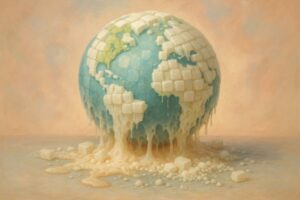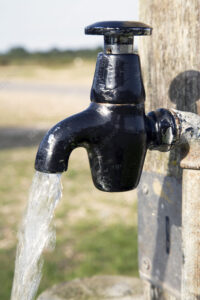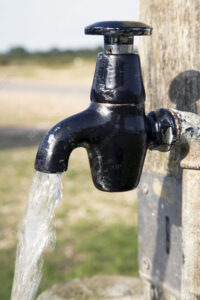What’s holding you back?
George Weah is one of the most iconic and famous Africans alive today. Mr. Weah was born in Monrovia, Liberia, on October 1, 1966. He grew up in Clara Town, a slum community on the outskirts of Monrovia. Mr. Weah was known for his footballing prowess at home and abroad; he used it to lift himself out of poverty and inspire an entire generation of his compatriots.
Mr. Weah is the first and only African to win the Ballon D’Or and FIFA World Player of the Year while playing international football for an African nation. At the peak of his career, he orchestrated a clean sweep of international football awards in 1995, the first and only African to do so. That year, George Weah was voted and recognized as the FIFA World Player of the Year, the Ballon D’Or Winner, European Player of the Year, and African Footballer of the Year. He won the latter of these awards for three consecutive years. Mr. Weah was known to be a skillful and lethal striker during the height of his professional football career. In 1996, he was named the African Footballer of the Century, and in 2004, Brazilian football legend Pele, named George Weah as one of the 100 greatest living footballers.
At the international football level, Mr. Weah proudly represented Liberia 75 times and scored 18 goals. This was during one of the darkest periods of the nation’s history. For almost the entirety of his international football career, Liberia was embroiled in a senseless civil war that claimed the lives of over 250,000 people. George Weah and his national teammates, affectionately dubbed the George Weah 11, were the symbols of solace and hope that Liberians looked up to during that period.
In 2003, Mr. Weah retired from playing football and entered politics, making a bid to become president of Liberia. In the 2005 election, the first after the brutal civil crisis, Mr. Weah contested for president on the ticket of the Congress for Democratic Change. He made it to the runoff election against Ellen Johnson Sirleaf, a seasoned Liberian politician, Harvard-trained economist, and international civil servant, after the two candidates failed to secure enough votes to win on the first ballot. He lost the runoff election to Madam Sirleaf.
During Mr. Weah’s 2005 presidential campaign, the intellectual and political classes of Liberia successfully argued that he lacked the experience and education to lead a nation just coming out of war. Against this background, he established an alliance with Winston A. Tubman, a United Nations diplomat and leader of the National Democratic Party of Liberia, to run on a unified ticket of the two parties. Tubman served as the standard bearer, while Weah stepped down to the role of vice standard bearer. However, Mr. Weah’s alliance with Mr. Tubman faltered after their party boycotted the runoff election against the incumbent president’s party, since no party secured enough votes to win the election on the first ballot for the second consecutive postwar election in the nation.
To address his Achilles heel of a lack of political leadership experience, Mr. Weah contested the midterm senatorial election in 2014 and won a seat in the Liberian Senate in a landslide, representing the county of his birth, Montserrado. In 2017, Mr. Weah contested for president again on his CDC Party ticket, defeating the incumbent Vice President, Joseph Boakai, in a runoff election to become the nation’s 25th president.
Mr. Weah’s story is one of resilience, hard work, and focused determination. He was not born with a silver spoon. His mother, Anna Quayeweah, was a petty trader. Though he has said very little about his biological father, William T. Weah, his father was said to be a mechanic and broke up with his mother when the future Liberian president was a toddler. Weah was one of thirteen children raised by his paternal grandmother, Mother Emma Klonjlaleh Brown, a devout Christian. In a 2000 interview with the United Kingdom newspaper, The Telegraph, after his move to Chelsea FC, Weah said, “Growing up was difficult; you have to go on the streets and hustle [sic].” However, Weah was determined to succeed.
His story is replete with multiple setbacks, but he possessed a spirit of resilience and perseverance. For example, when Mr. Weah first travelled to Europe to play for AS Monaco, he struggled to come to grips with the demands of elite European football. According to encyclopedia.com, “Weah was out of his league.” Many people in his situation would have folded, but he was determined to succeed at the highest level. When Weah was told that he was not educated enough to lead his country, he returned to school and earned a Master Degree in Public Administration, and when he was told that he lacked the experience to lead a postwar nation, he self-demoted to acquire the needed experience in the Liberian Senate for three years before running for the nation’s top seat once again.
What can we learn from the story of George Weah?
Grit and determination
“When I took the ball, it was like I had lost my mind. Somebody kept pushing me and saying to me, “Go! Go! Go! Go! Go!” This was George Weah recounting his wonder goal against Hellas Verona in the Italian Serie in 1999 in an interview with the Guardian newspaper. In just 14 seconds, he covered 90 yards from the edge of his penalty area to slot the ball into the net at the other end of the field, leaving opposing players in his wake and carving a place for himself in perpetuity. And those 14 seconds encapsulate the career of George Weah perfectly, a man of grit and determination.
Willingness to learn and grow
George Weah was willing to learn, grow, and adapt to his changing circumstances. At a young age, he departed his homeland, first for Cameroon, then for Europe. In those distant lands, he had to assimilate into a new culture, learn a different style of playing football, and on multiple occasions, learn how to speak a new language to integrate into his new environments. He took on these challenges with his usual grit and determination and learned quickly. For example, in France, not only did he have to learn a new language, but he also had to learn a new way of playing football. Unlike in Africa, where the game relied more on the physical attributes of a player, in France, the game was faster and more tactical.
Self-belief
Weah possessed an incredible belief in his ability to succeed. Speaking to the Guardian Newspaper in 2000, he recalled his early days in France at AS Monaco Football Club, “When I moved to Monte Carlo [to play for Monaco…in 1988], I didn’t play for the first six months, but I was determined to showcase my talent, to prove to those back home who thought that my coming to France was a waste of time that I was a good player.” Well, he proved to be a great player.
At the end of the 1989 season, France Football named George Weah the best African player, and he was voted the best foreign player in France’s top football league.
George Weah’s story shows that talent alone does not guarantee success. Grit, determination, self-confidence, and a willingness to learn and grow are very important to the success of anyone. Sometimes, we believe that our talent will take us across the finish line, but as we have seen in this remarkable story, much more than talent is needed. Weah was undoubtedly a talented player, but to succeed, he worked hard.
What’s holding you back?



